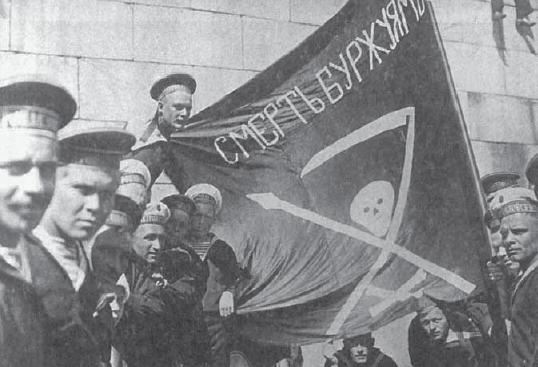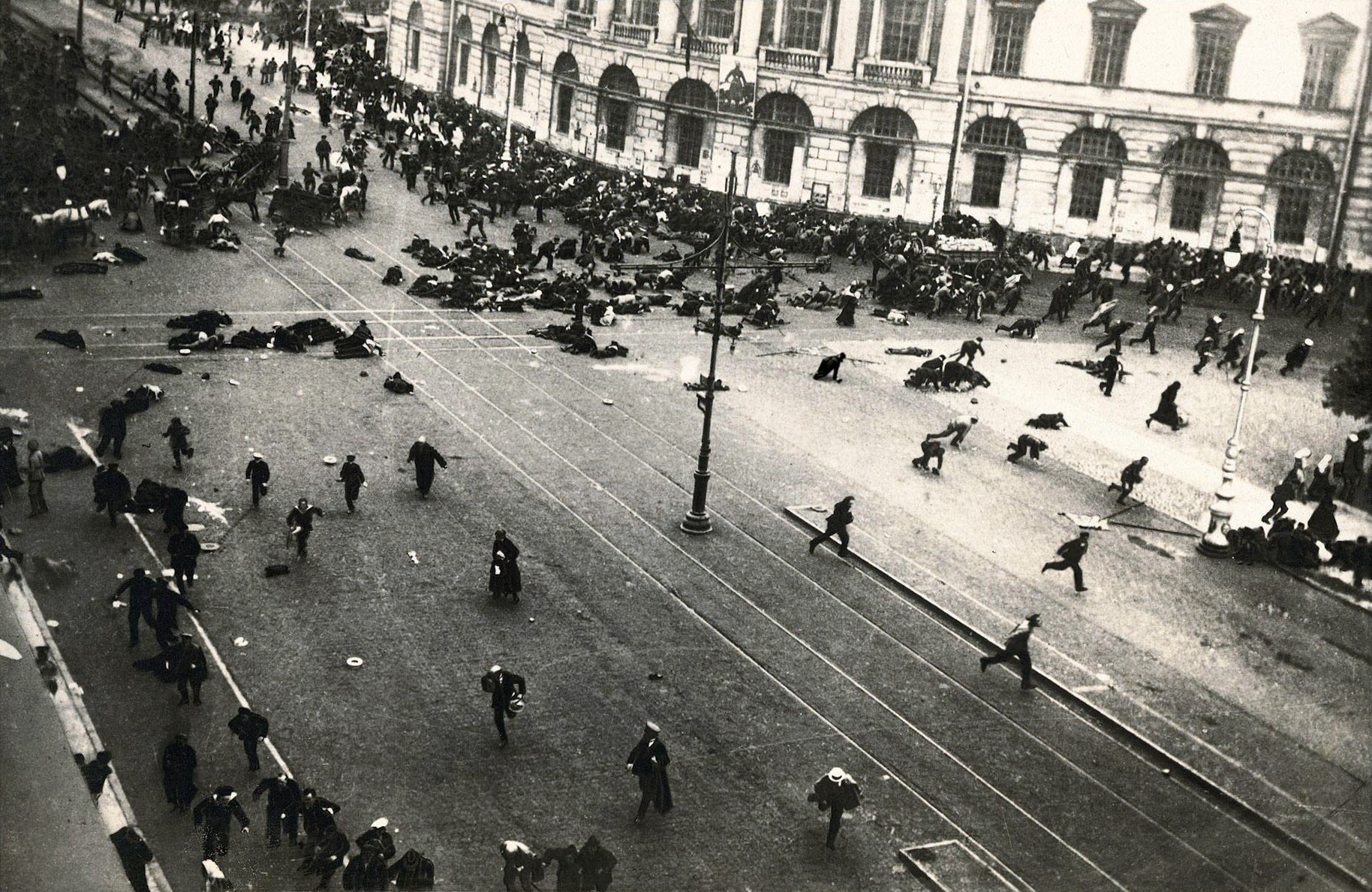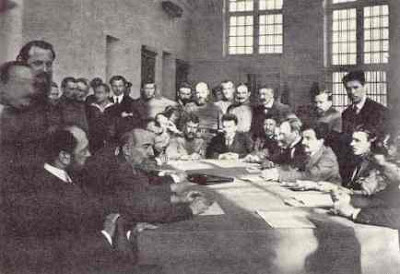Hnau
Banned
(Vladimir Ilich Ulyanov, better known by his pseudonym 'Lenin', does not live long enough to affect history. What century might we have known without his influence?)
"Vladimir Lenin's domination of the Bolsheviks he led to power--'willed' might be a better word--was total, and in a war that had never been known before. 'No other political party,' the historian Orlando Figes writers, 'had been so closely tied to the personality of one man.' Impatient and acerbic, perpetually angry, Lenin did not tolerate dissent: There was no way but his. Moral choice (or immoral, as the case might be) was resolved by force of character--his... He trafficked in abstractions and treated human beings, indeed entire populations, as if they were boxcars in a switching yard. And yet this man of few contradictions was a natural leader, whose obsession would sweep along hundreds at first and, eventually, millions. Lenin's single-minded inflexibility would influence the future of most of the world, now almost entirely to its regret."
- George Feifer
January 21st, 1900
Chelyabinsk News
Of the seventy that were quarantined two days ago, forty-one have perished from the typhus that had spread rampantly throughout their passenger car during their journey from Omsk. Citizens are cautioned that travel by rail during the winter is potentially dangerous.
March 10th, 1917 [1]
Petrograd, Russian Empire
“Permission to load?” cried the workers sarcastically, as Andrei lifted the bottle in front of him in the frosty air. There was no response.
Pavel, who pushed the wheelbarrow, cuffed the sack inside twice. A voice inside stammered, “Permission granted.” Yegor’s fear quickly turned to anger, “And get me out of this coal bag! I can hardly breathe!”
Andrei downed a mouthful of vodka as his fellow workers cheered. It was hot in his belly.
“Come Pavel, let me push the oaf.” Andrei blurted. Pavel eagerly switched places and Andrei took command of the wheelbarrow.
“Not breathing well, Yegor? We can help that. Come brothers, let us assist our comrade.” Andrei chuckled and scratched his big black beard, thinking of his childhood, “Press the pig!”
The rest of the workers, all of them with winter beards, all of them covered with soot and scratches, lined up behind the wheelbarrow and one-by-one came up to its side, where with both hands they each pressed in Yegor’s fat stomach with no lack of hostility. There was laughing and singing as the former foreman gasped for air. The motley group of labourers all hailed from Korsakovka, a village north of Saratov. When they had each decided to move to Petrograd to find work, they had sought out each other, and that was the reason all Korsakovka men worked at Starkov Steel. Each of them remembered in their childhood the day of the year when the village council decided the pigs were to be slaughtered before winter. The children would take a break from their chores to surround the carts where the pigs lay tied up, and they would push their fat bellies until they squealed. It was a marvelous kind of fun, and more so with Yegor.
The workers of Starkov Steel continued down the avenues of Petrograd, and there was a festive chaos in the air. The tsar had been overthrown, and people did as they pleased. Workers, soldiers, and all kinds of people rushed or marched to various destinations. The smell of smoke was everywhere, and the occasional rifle shot was heard over the din. There was singing, there was the chanting of slogans, there was the not too infrequent scream or cry for help. The city was crazy. And why not? So few had filled bellies, so few had adequate winter clothing, so few had coal to keep their flats warm. Desperation called for craziness.
“We’re almost there, Yegor.” Andrei chuckled. He then screwed up his nose as he smelled something above his own stench and the smoke of the city.
“Yegor, have you soiled yourself?” The workers began to laugh, “Why, all the pigs in Korsakovka have you outclassed!”
“One hundred rubles! I’ll show you where they are, just let me out of this sack. You’ve had your fun!” Yegor pleaded.
“Only one hundred? We found twice that many in your office’s closet. Already divided it amongst each other. You have more than that, you old tsar?”
Yegor knew that the situation was hopeless; he remained quiet as the Starkov Steel workers pushed him up a bridge over the Neva River.
“Permission to load?” The workers sang when they stopped.
Yegor sighed, “Permission granted.” But no one held a bottle of vodka in front of them. Instead, all of them surrounded the wheelbarrow, and quietly gripped the edges of the coal sack and hefted the fat foreman into the air.
“What are you doing? You’ve had your fun, boys, now-” And they tossed him over the side of the bridge. Pavel slipped when they chucked him, causing the man to spin. He wriggled furiously as he fell, until he bounced off of a steel beam. The rest of his descent into the icy waters below was quite calm.
“The foreman is gone!” They all cheered. Andrei took Pavel by the hand and danced, there on the bridge, he turned and span in place.
“Don’t worry, dear Yegor,” Andrei leaned over the railing to yell, “I am sure you can manage the fish! Order them around! Your skills are not entirely wasted!” They all laughed.
There were so many people dancing on the bridge. And the bodies fell one by one, establishing a kind of slow rhythm that only God could perceive. Some fat, some small, some men, some women, some in sacks, some not. The workers, the common people above, were dancing to the rhythm of their deaths. Each one was progress towards a better society.
Later Andrei Zagorsky warmed his hands above the furnace at Starkov Steel with the rest of the workers.
“Its ours, you know, this steel mill.” Andrei said.
“We should just burn it to the ground and get back to Korsakovka. There’s probably more food there.” Someone said.
“No.” Andrei spoke in a hushed, serious tone, “Its ours now, we took it. We know how to run it, right? So lets run it! We’ll find the iron and the coal, we’ll sell the steel, and there’s no Yegor to skim the cream off, to make money off of our labor, and there’s no Starkov either to take all the profits. We’ll divide everything we earn equally, collectively, and we’ll all live like nobles.”
“My father always told me,” Pavel began, “in Korsakovka, to never stop sending the money. They need it badly, you know? They’re the poor ones, not us. I don’t want to be an extra mouth to feed, not, at least, until harvest time, when I'd go down anyway. I make steel now.”
“Andrei,” another said, “You think you’ll become our new Yegor?” There was a small laugh. Andrei felt something dark inside of him. He didn’t want anyone thinking that.
“No need for a foreman. We’ll elect a committee, like how some plants have unions. A fabkom. Just like the village commune, da?”
“The Worker's Republic of Starkov Steel Factory Number Five!” Pavel said.
“It’s a good idea, Andrei.” Someone said.
“No need to get started now, though,” Andrei laughed, “Let’s just enjoy this revolution while it lasts.”
[1] - This date is in the Gregorian calendar, of course. It should also be known that this entire piece could fit in OTL as well, there is nothing too divergent about the scene, I just wanted to showcase a unique account of Russian brutality during the February Revolution as well as the development of the fabzomkom idea.
"Vladimir Lenin's domination of the Bolsheviks he led to power--'willed' might be a better word--was total, and in a war that had never been known before. 'No other political party,' the historian Orlando Figes writers, 'had been so closely tied to the personality of one man.' Impatient and acerbic, perpetually angry, Lenin did not tolerate dissent: There was no way but his. Moral choice (or immoral, as the case might be) was resolved by force of character--his... He trafficked in abstractions and treated human beings, indeed entire populations, as if they were boxcars in a switching yard. And yet this man of few contradictions was a natural leader, whose obsession would sweep along hundreds at first and, eventually, millions. Lenin's single-minded inflexibility would influence the future of most of the world, now almost entirely to its regret."
- George Feifer
January 21st, 1900
Chelyabinsk News
Of the seventy that were quarantined two days ago, forty-one have perished from the typhus that had spread rampantly throughout their passenger car during their journey from Omsk. Citizens are cautioned that travel by rail during the winter is potentially dangerous.
March 10th, 1917 [1]
Petrograd, Russian Empire
“Permission to load?” cried the workers sarcastically, as Andrei lifted the bottle in front of him in the frosty air. There was no response.
Pavel, who pushed the wheelbarrow, cuffed the sack inside twice. A voice inside stammered, “Permission granted.” Yegor’s fear quickly turned to anger, “And get me out of this coal bag! I can hardly breathe!”
Andrei downed a mouthful of vodka as his fellow workers cheered. It was hot in his belly.
“Come Pavel, let me push the oaf.” Andrei blurted. Pavel eagerly switched places and Andrei took command of the wheelbarrow.
“Not breathing well, Yegor? We can help that. Come brothers, let us assist our comrade.” Andrei chuckled and scratched his big black beard, thinking of his childhood, “Press the pig!”
The rest of the workers, all of them with winter beards, all of them covered with soot and scratches, lined up behind the wheelbarrow and one-by-one came up to its side, where with both hands they each pressed in Yegor’s fat stomach with no lack of hostility. There was laughing and singing as the former foreman gasped for air. The motley group of labourers all hailed from Korsakovka, a village north of Saratov. When they had each decided to move to Petrograd to find work, they had sought out each other, and that was the reason all Korsakovka men worked at Starkov Steel. Each of them remembered in their childhood the day of the year when the village council decided the pigs were to be slaughtered before winter. The children would take a break from their chores to surround the carts where the pigs lay tied up, and they would push their fat bellies until they squealed. It was a marvelous kind of fun, and more so with Yegor.
The workers of Starkov Steel continued down the avenues of Petrograd, and there was a festive chaos in the air. The tsar had been overthrown, and people did as they pleased. Workers, soldiers, and all kinds of people rushed or marched to various destinations. The smell of smoke was everywhere, and the occasional rifle shot was heard over the din. There was singing, there was the chanting of slogans, there was the not too infrequent scream or cry for help. The city was crazy. And why not? So few had filled bellies, so few had adequate winter clothing, so few had coal to keep their flats warm. Desperation called for craziness.
“We’re almost there, Yegor.” Andrei chuckled. He then screwed up his nose as he smelled something above his own stench and the smoke of the city.
“Yegor, have you soiled yourself?” The workers began to laugh, “Why, all the pigs in Korsakovka have you outclassed!”
“One hundred rubles! I’ll show you where they are, just let me out of this sack. You’ve had your fun!” Yegor pleaded.
“Only one hundred? We found twice that many in your office’s closet. Already divided it amongst each other. You have more than that, you old tsar?”
Yegor knew that the situation was hopeless; he remained quiet as the Starkov Steel workers pushed him up a bridge over the Neva River.
“Permission to load?” The workers sang when they stopped.
Yegor sighed, “Permission granted.” But no one held a bottle of vodka in front of them. Instead, all of them surrounded the wheelbarrow, and quietly gripped the edges of the coal sack and hefted the fat foreman into the air.
“What are you doing? You’ve had your fun, boys, now-” And they tossed him over the side of the bridge. Pavel slipped when they chucked him, causing the man to spin. He wriggled furiously as he fell, until he bounced off of a steel beam. The rest of his descent into the icy waters below was quite calm.
“The foreman is gone!” They all cheered. Andrei took Pavel by the hand and danced, there on the bridge, he turned and span in place.
“Don’t worry, dear Yegor,” Andrei leaned over the railing to yell, “I am sure you can manage the fish! Order them around! Your skills are not entirely wasted!” They all laughed.
There were so many people dancing on the bridge. And the bodies fell one by one, establishing a kind of slow rhythm that only God could perceive. Some fat, some small, some men, some women, some in sacks, some not. The workers, the common people above, were dancing to the rhythm of their deaths. Each one was progress towards a better society.
Later Andrei Zagorsky warmed his hands above the furnace at Starkov Steel with the rest of the workers.
“Its ours, you know, this steel mill.” Andrei said.
“We should just burn it to the ground and get back to Korsakovka. There’s probably more food there.” Someone said.
“No.” Andrei spoke in a hushed, serious tone, “Its ours now, we took it. We know how to run it, right? So lets run it! We’ll find the iron and the coal, we’ll sell the steel, and there’s no Yegor to skim the cream off, to make money off of our labor, and there’s no Starkov either to take all the profits. We’ll divide everything we earn equally, collectively, and we’ll all live like nobles.”
“My father always told me,” Pavel began, “in Korsakovka, to never stop sending the money. They need it badly, you know? They’re the poor ones, not us. I don’t want to be an extra mouth to feed, not, at least, until harvest time, when I'd go down anyway. I make steel now.”
“Andrei,” another said, “You think you’ll become our new Yegor?” There was a small laugh. Andrei felt something dark inside of him. He didn’t want anyone thinking that.
“No need for a foreman. We’ll elect a committee, like how some plants have unions. A fabkom. Just like the village commune, da?”
“The Worker's Republic of Starkov Steel Factory Number Five!” Pavel said.
“It’s a good idea, Andrei.” Someone said.
“No need to get started now, though,” Andrei laughed, “Let’s just enjoy this revolution while it lasts.”
[1] - This date is in the Gregorian calendar, of course. It should also be known that this entire piece could fit in OTL as well, there is nothing too divergent about the scene, I just wanted to showcase a unique account of Russian brutality during the February Revolution as well as the development of the fabzomkom idea.
Last edited:



